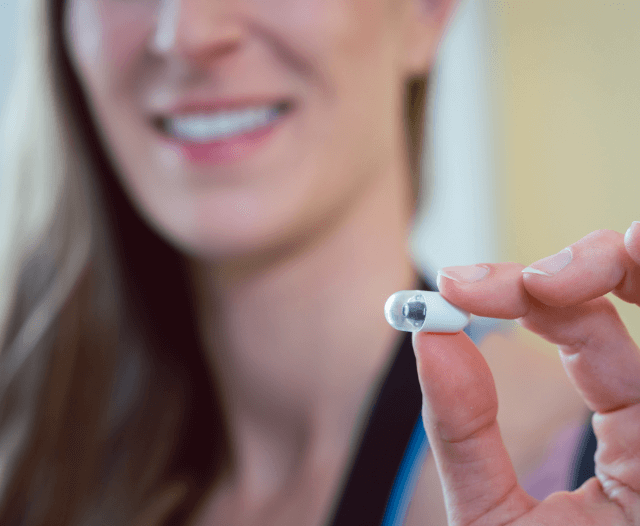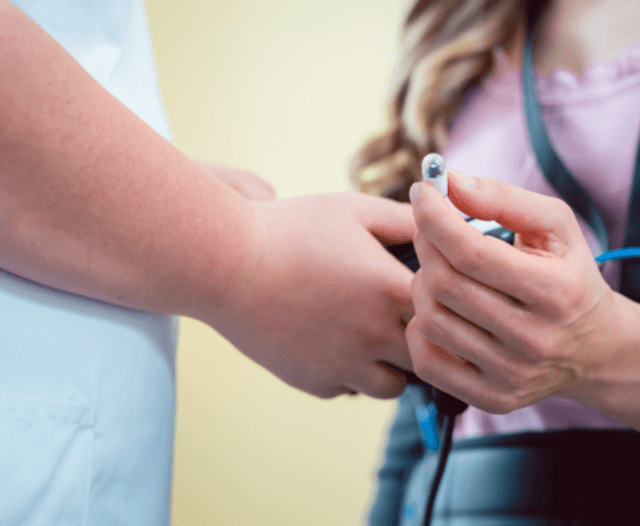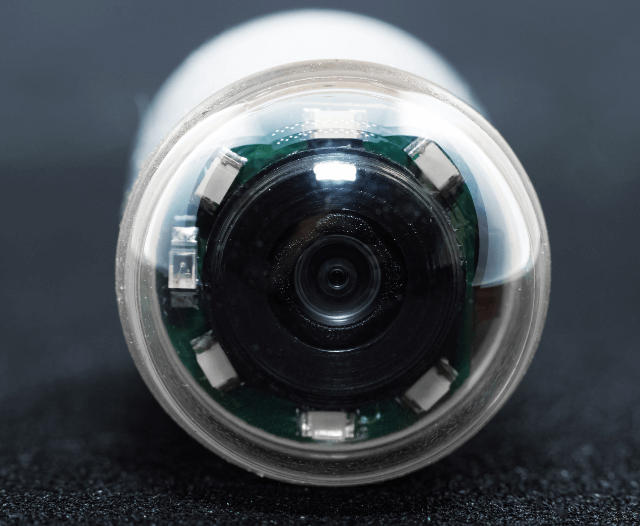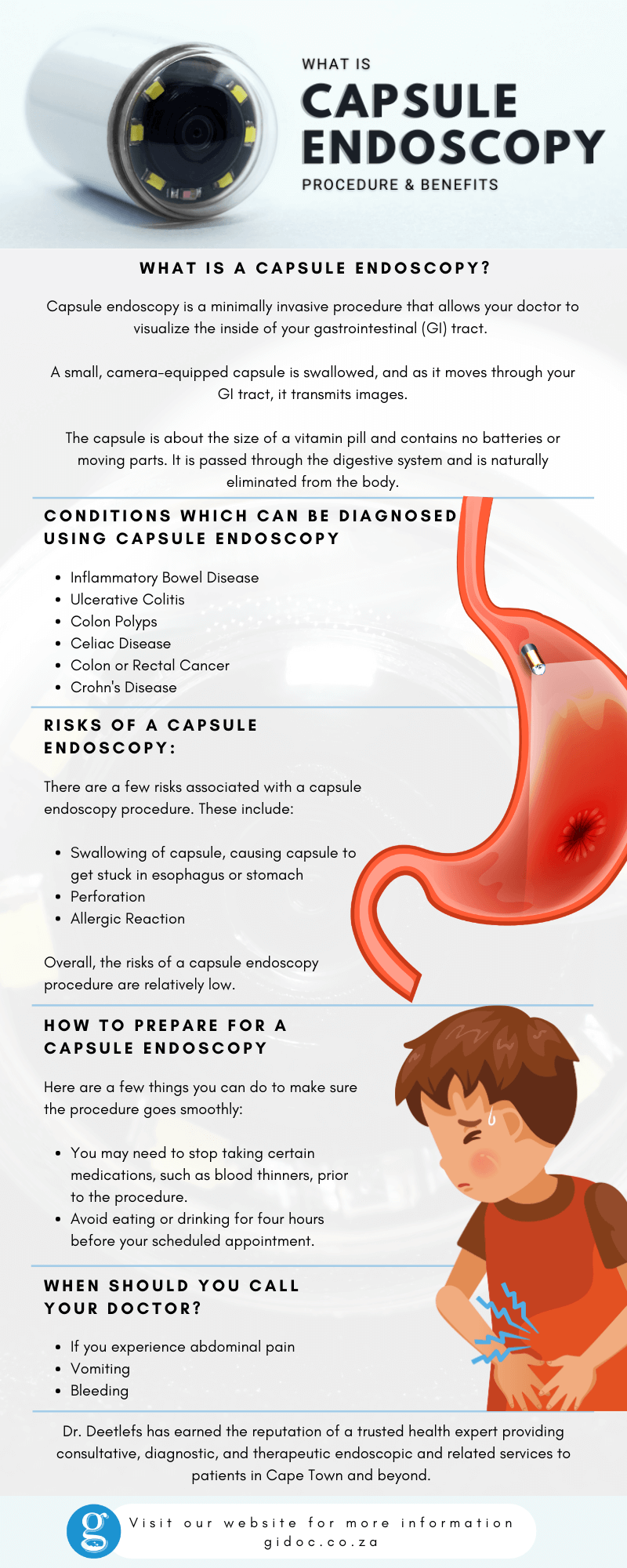Overview
A capsule endoscopy is a procedure that allows your doctor to examine the lining of your gastrointestinal (GI) tract. A capsule endoscopy is also called a wireless endoscopy or a pillcam endoscopy.
During a capsule endoscopy, you swallow a pill-sized camera. The camera takes pictures of the inside of your GI tract and sends the images to a computer. Your doctor looks at the images to check for problems such as bleeding, inflammation, or tumors.
A capsule endoscopy is a very safe and painless way to check for problems in your GI tract.
The procedure is typically done as an outpatient procedure, which means you can go home the same day.
Capsule endoscopy is a minimally invasive procedure that allows your doctor to visualize the inside of your gastrointestinal (GI) tract.
A small, camera-equipped capsule is swallowed, and as it moves through your GI tract, it transmits images to a recorder worn on a belt around your waist.
This procedure is used to evaluate the small intestine, which is difficult to examine with other types of endoscopies.
Capsule endoscopy can be used to diagnose Crohn’s disease, ulcerative colitis, and other GI disorders.
The capsule is about the size of a vitamin pill and contains no batteries or moving parts. It is passed through the digestive system and is naturally eliminated from the body.
In this article Dr. Deetlefs explains the procedure of a capsule endoscopy and how this procedure can be beneficial to patients suffering from above symptoms.

Conditions Which Can Be Diagnosed Using Capsule Endoscopy
Capsule endoscopy is a procedure used to detect signs of digestive system problems and help diagnose a variety of conditions.
Your doctor may recommend capsule endoscopy if he or she suspects you have:
- Inflammatory bowel disease (IBD) such as Crohn’s disease
- Ulcerative Colitis
- Colon Polyps
- Celiac Disease
- Colon or rectal cancer
- Gastrointestinal bleeding
Capsule Endoscopy Procedure Explained
A capsule endoscopy procedure is a minimally invasive way to examine the inside of your gastrointestinal tract.
A tiny camera in a capsule is swallowed, and as it passes through your GI tract, it takes pictures that are transmitted to a recorder worn on a belt around your waist.
The capsule endoscopy procedure is quick and relatively painless, and it provides your doctor with clear images of the inside of your GI tract so that they can better diagnose and treat any problems.

Risks of a Capsule Endoscopy
A capsule endoscopy is a minimally invasive procedure used to examine the gastrointestinal tract. The procedure involves swallowing a small capsule that contains a camera.
The camera takes pictures of the inside of the gastrointestinal tract as the capsule passes through.
There are a few risks associated with a capsule endoscopy procedure. These include:
Swallowing the capsule:
There is a risk that the capsule could be swallowed instead of passing through the gastrointestinal tract. This could cause the capsule to get stuck in the esophagus or stomach.
Perforation
There is a risk that the capsule could perforate the gastrointestinal tract. This could lead to serious complications and requires immediate medical attention.
Allergic reaction
There is a risk of having an allergic reaction to the capsule. This could cause difficulty breathing, swelling, and hives.
Overall, the risks of a capsule endoscopy procedure are relatively low.
However, it is important to discuss the risks with your doctor prior to the procedure.
Benefits of a Capsule Endoscopy
Capsule endoscopy is used to diagnose a variety of gastrointestinal disorders, including Crohn’s disease, ulcerative colitis, and gastrointestinal bleeding.
It is also used to assess the severity of these disorders and to monitor the effectiveness of treatment.
Capsule endoscopy is generally well tolerated, with the most common side effect being nausea.
The procedure is usually performed as an outpatient procedure, and patients can typically resume their normal activities the same day.

How to Prepare for a Capsule Endoscopy
Looking to prepare for your upcoming capsule endoscopy? Here are a few things you can do to make sure the procedure goes smoothly:
- Talk to your doctor about any medications you’re taking. You may need to stop taking certain medications, such as blood thinners, prior to the procedure.
- Avoid eating or drinking for four hours before your scheduled appointment. This will help ensure that the capsule can move through your digestive system properly.
- Follow any other instructions from your doctor. They will likely give you specific instructions based on your individual health needs and the type of procedure you’re having.
By following these simple steps, you can help ensure that your capsule endoscopy goes smoothly and that you get the most accurate results possible.
When Should I Call My Doctor After a Capsule Endoscopy
If you’ve recently had a capsule endoscopy, you may be wondering when you should call your doctor. Here are a few things to keep in mind:
- If you’re experiencing any abdominal pain, vomiting, or bleeding, call your doctor immediately.
- If you’re not feeling any better after a few days, or if your symptoms are getting worse, call your doctor.
- If you have any questions or concerns about your capsule endoscopy or your recovery, don’t hesitate to call your doctor.
In general, it’s always best to be on the side of caution and call your doctor if you’re feeling even the slightest bit off after a capsule endoscopy.
What Happens After a Capsule Endoscopy
After a capsule endoscopy, the patient will be monitored for any adverse reactions to the procedure.
The capsule will be passed through the digestive system and will be eliminated in the patient’s stool.
The patient may experience some cramping and bloating during the procedure, but this should resolve within a few hours. The capsule endoscopy procedure is generally safe and well-tolerated by patients.
A capsule endoscopy is a procedure used to examine the inside of the gastrointestinal tract. A small camera is used to take pictures of the inside of the tract. The pictures are then sent to a computer for analysis.
If you experience any extreme abdominal pain after having a capsule endoscopy, it is important to contact your doctor right away.
This is because abdominal pain can be a sign of a serious complication, such as a perforation (hole) in your gastrointestinal tract.
While most cases of abdominal pain after a capsule endoscopy are not serious, it is important to be sure, so that you can get the treatment you need.

Conclusion
Capsule endoscopy is a minimally invasive procedure that allows for an in-depth look into the gastrointestinal tract.
The procedure utilizes tiny pill-sized cameras to collect clear images to provide your doctor with a visual platform to gain insight into abnormal tissue and ailments that may be present at the time of the procedure.
For any additional information regarding Capsule endoscopy, it’s best to find a trusted and experienced Gastroenterologist who can answer your questions clearly, recommend appropriate solutions, and perform tests with precision and expertise.
Dr. Deetlefs has earned the reputation of a trusted health expert providing consultative, diagnostic, and therapeutic endoscopic and related services to patients in Cape Town and beyond.
Dr Eduan prides himself on his ability to help his patients to the best of his ability by embracing good listening skills, effective communication, compassion and knowledge and skill honed during years of private gastroenterology practice.
If you would like to book an appointment with a gastrointestinal (GI) specialist or would simply like more information on a particular GI topic, don’t hesitate to use our online booking form
or call Dr. Deetlefs at 021 551 867.
DISCLAIMER: PLEASE READ CAREFULLY
The information on this website is to provide general guidance. In no way does any of the information provided reflect definitive medical advice and self-diagnoses should not be made based on information obtained online. It is important to consult a Gastroenterologist or medical doctor regarding ANY and ALL symptoms or signs including, but not limited to: abdominal pain, haemorrhoids or anal / rectal bleeding as it may a sign of a serious illness or condition. A thorough consultation and examination should ALWAYS be performed for an accurate diagnosis and treatment plan. Be sure to call a physician or call our office today and schedule a consultation.
© Dr. Eduan Deetlefs, Registered Gastroenterologist, GI Doc Cape Town
Our website information is not intended or implied to be a substitute for professional medical advice, diagnosis or treatment. Please consult a doctor about your specific condition. Only a trained physician can determine an accurate diagnosis and proper treatment.


